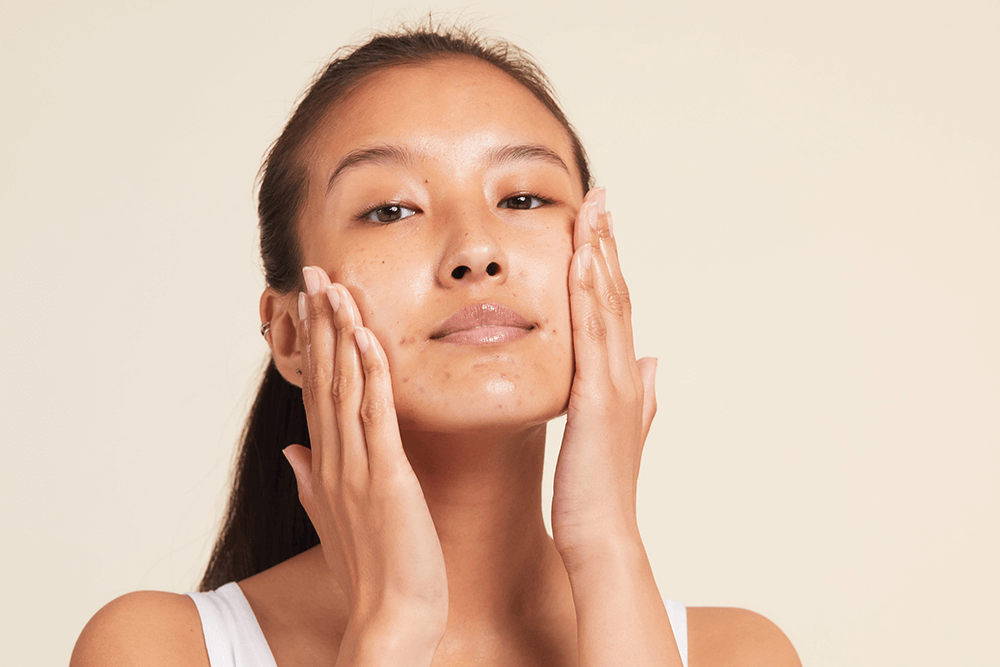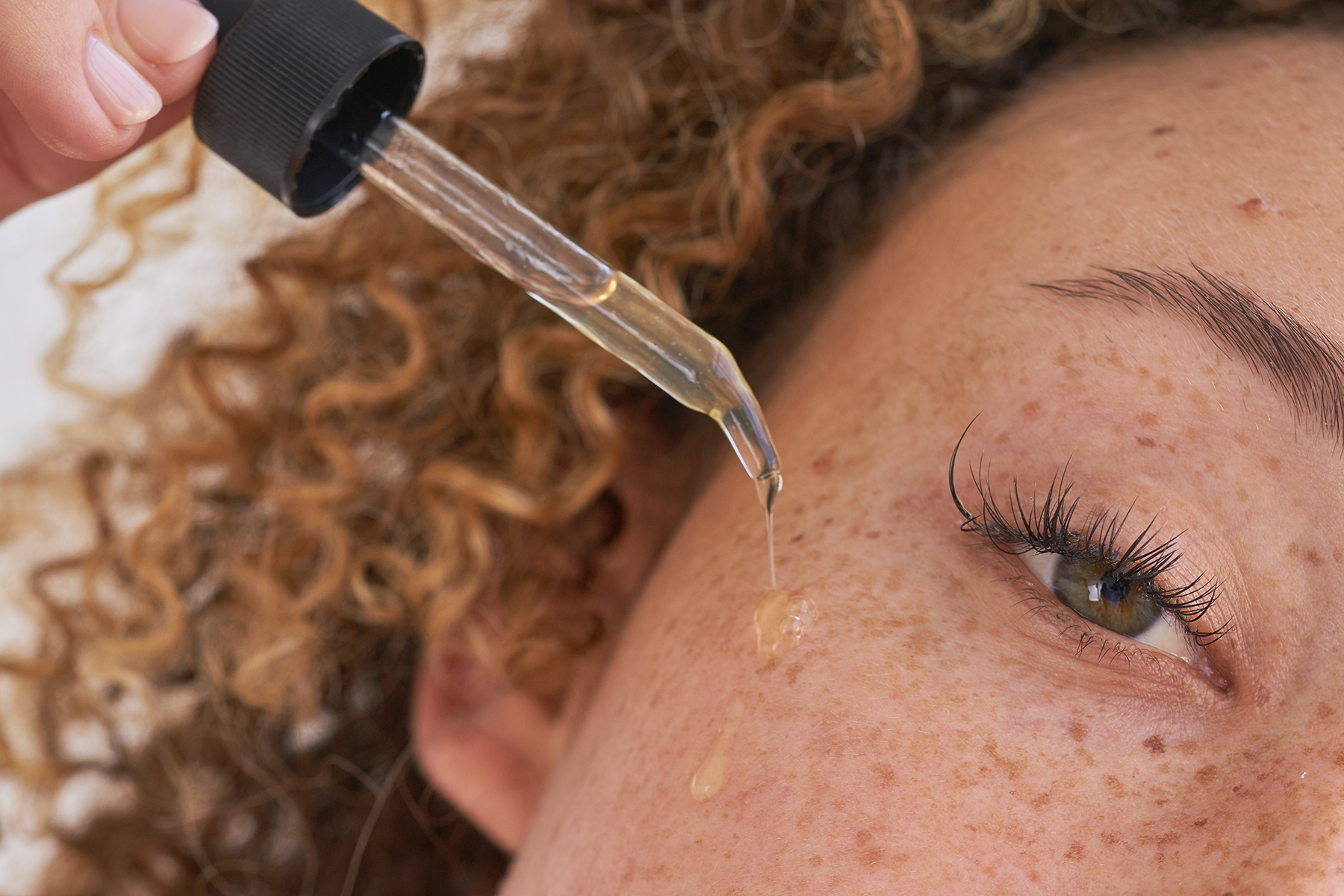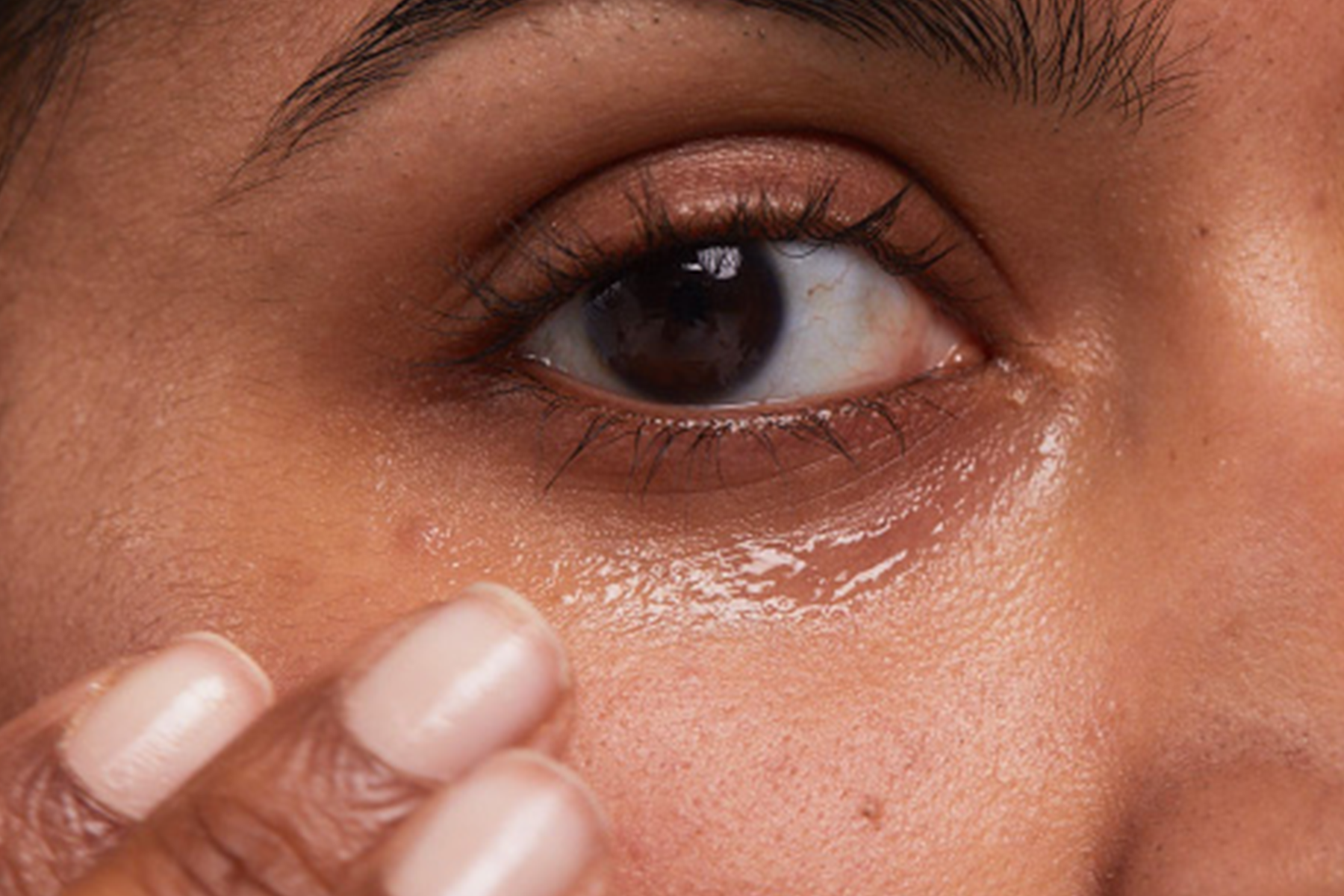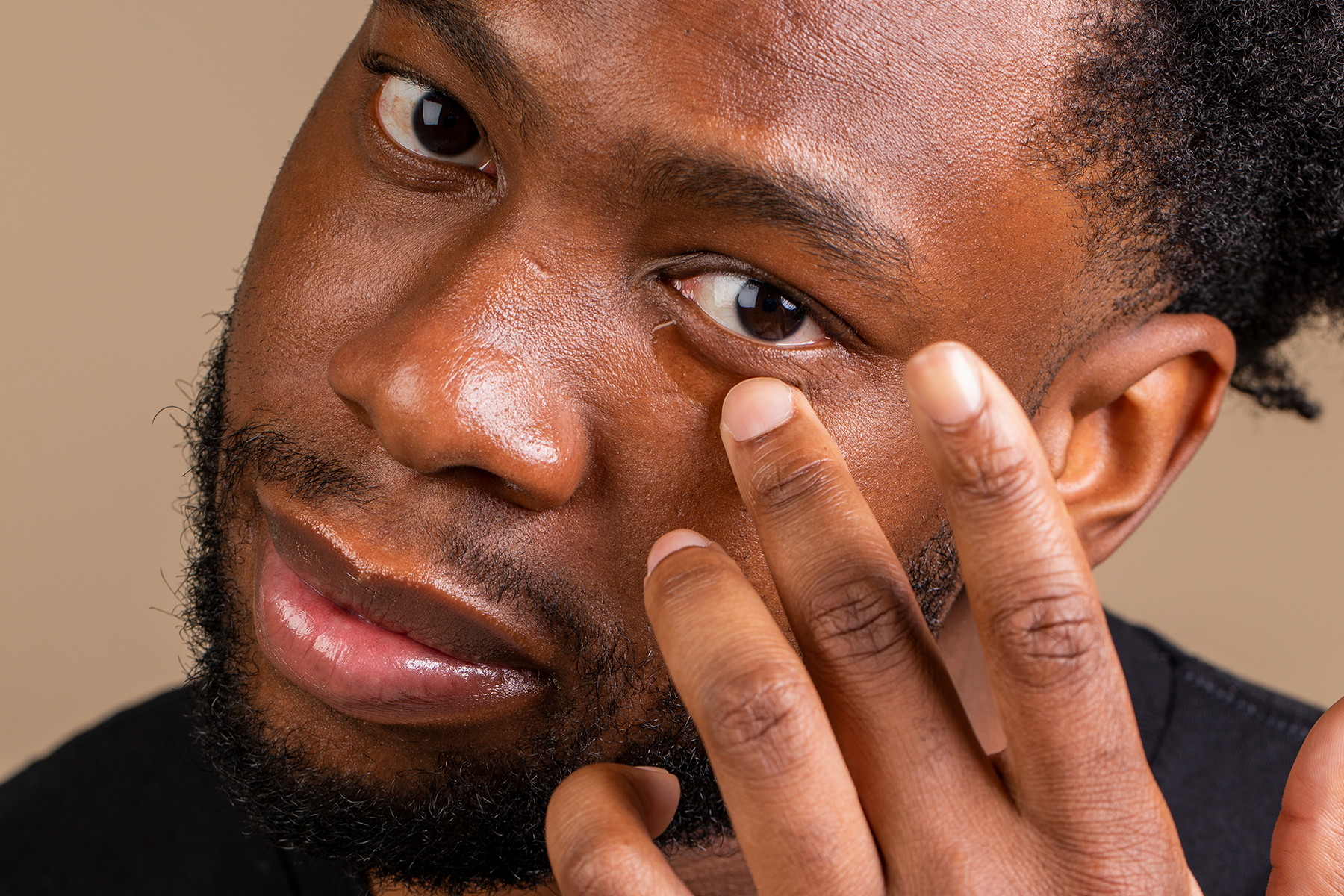The+Source
A jack-of-all-skincare woes, retinol is one of the most beloved skincare ingredients among dermatologists. From smoothing fine lines and wrinkles, to eliminating acne, increasing cell turnover and improving the tone and texture of skin, retinol can benefit nearly every skin type.
So why does it collect dust in the back of so many medicine cabinets during the summer months?
Retinol stimulates cellular turnover which reveals fresh, new skin cells that are more sensitive to the sun and prone to burning. UVA/UVB also breaks down retinol, diminishing its potency (this is why you usually see retinol products packaged in dark or opaque bottles).
But banishing retinol from your summer routine means your missing out on 92 days of retinol’s collagen-stimulating, cell turnover magic – not ideal.
What if we told you that you didn’t have to part ways with your favorite retinol product once the days get warmer? You can use your retinol year-round with the proper precautions.
Here are a few tips for safely and comfortably using retinol products every day of the year.
Wear SPF 30+ every day
We are already wearing an SPF every single day always, right? So, this one should be easy.
Sun exposure accounts for 90% of early signs of aging and can cause skin cancer. It is especially important to be diligent in your sunscreen application when using a retinol (no matter the season).
First and foremost, retinol reveals fresh, bright new skin cells which are more sensitive to the sun. Daily application of sunscreen protects skin from sun damage.
Second, UVA/UVB break down many different skincare ingredients, including alpha hydroxy acid (AHA) and hydroquinone. Retinol is no exception — UV light can inactivate retinol and reduce its effectiveness.
If you wear retinol without sunscreen during the day, it’ll break it down before it can work its magic.
In fact, dermatologists and skincare enthusiasts even recommend sunscreen if you're indoors since you can still catch the sun's rays through the window. Without sunscreen, even the best skincare regimen would fall flat.
Accessorize with hats and sunglasses
Although sunscreen is the best way to block UVA and UVB rays, it doesn't hurt to take extra precautions. Adding a visor, baseball cap, or floppy beach hat to your outfit is a fashionable way to keep skin protected — the wider the brim, the better.
Sunglasses can also give skin some shade, especially if they are large enough to cover a significant portion of your face. The eye area is extremely delicate and is one of the first to show early signs of aging.
If you use retinol on the backs of your hands, channel your inner Lauryn Evarts and invest in sun-protective driving gloves. Sunlight reflects through your windows and windshield while you drive. When your hands are on the wheel, they’re in direct sunlight for however long you’re on the road.
Apply retinol at night, not during the day
Still concerned about skin sensitivity from retinol? Limit retinol to your nighttime routine.
This will allow actives, including retinoic acid, to work while you sleep, so you have a decreased risk of sun sensitivity (but you still need an SPF the next day – friends don’t let friends skip sunscreen).
Using retinol at night also makes sense from a biological perspective. When you’re asleep, your skin is working to revive and repair itself. It’s battling wrinkles, fine lines, crow’s feet, and even acne. Retinol can work in tandem with your skin’s natural maintenance routine, helping to stimulate and encourage the process.
Break out the vitamin C
Vitamin C and retinol are a great pair. While you can’t formulate the two ingredients together in the same product, you can absolutely layer them.
And it’s a good idea. Not only does vitamin C stimulate collagen production, it also gives you a layer of protection against free radicals (molecular reactions in the body caused by oxidation and environmental exposure, such as UV exposure, pollution or tobacco smoke). Although free radicals have a short life span, they can cause DNA damage and break down precious collagen in skin.
Not sure if we need to say this again but you still need to wear that SPF! Think of vitamin C as more of a bonus shield. It’s not as crucial or dire as sunscreen, but it’s exceptionally helpful if you do decide to incorporate retinol into your skincare routine.
Bonus tip: you can apply a retinol serum at night and your vitamin C serum during the day if you are experiencing irritation layering the two products directly.Don’t miss out on 3 months of retinol
Does retinol make the skin sensitive to sun? Yes. But that doesn’t mean you can’t use retinol year-round.
With the proper precautions and UV blockers, you can embrace the benefits of retinol 365 days per year.
Remember to be consistent with your skincare regimen. The best retinol and highest SPF in the world won't work if you only use them half the year. Consistency always wins in the end.
Find a retinol product that works for you. Retinol products with ingredients like ferulic acid, rambutan, and bakuchiol keep your moisture barrier intact and keep irritation to a minimum.
Since there is no such thing as a perfect product, so try vetting them first. Look over clinical studies that prove a product’s effectiveness. If the reviews look promising and a trusted cosmetic leader or chemist created the formula, you’re likely in good hands.








